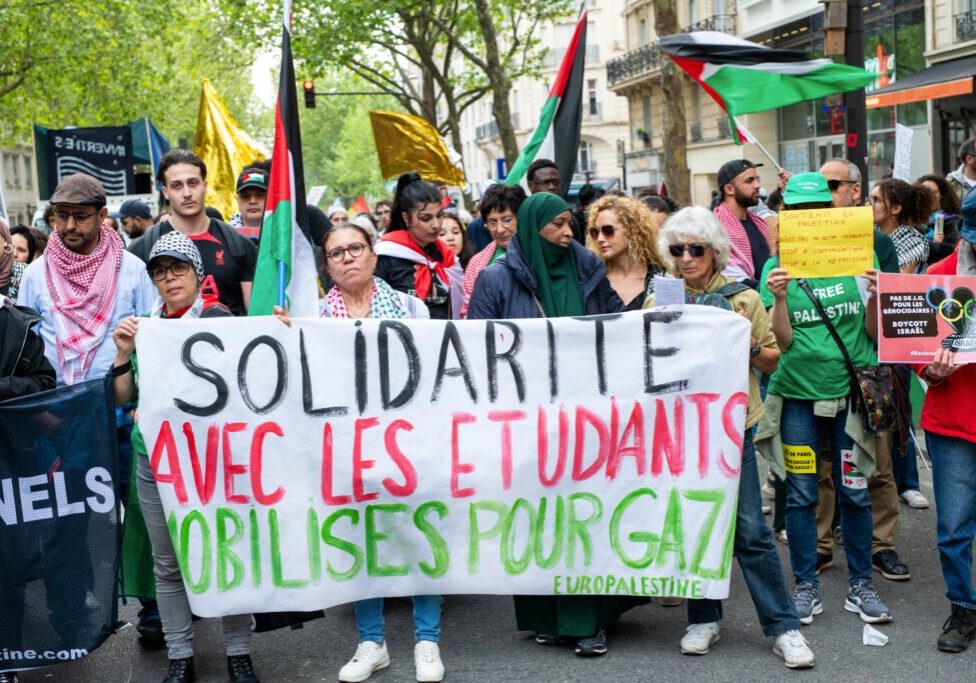Australia/Israel Review
Europa Europa: Continental Drift
Mar 1, 2006 | Douglas Davis
Douglas Davis
CONTINENTAL DRIFT
Europe’s political elites had developed a nice line in serenity when confronted with the prospect of a Middle East meltdown. They expressed ritual outrage in the face of suicide bombings in Israel and televised beheadings in Iraq, but they remained imperturbable. The mask stayed intact even when the nuclear-hungry Iranians were running rings around their foreign ministers.
They were confident that the liberal application of civilised sweet reason, rhetorical ambiguity, memoranda of understanding and goodwill, nourished by copious quantities of aid, trade, credit lines and technology transfers, would trump the heavy-handed neocon primitives in Washington. How wrong they were.
The political tsunami that engulfed Europe in the first months of this year has shattered the soft-power smugness of its political classes. Years of fingertip diplomacy were swept away on a wave of contrived wrath over the Danish cartoons and the collapse of the nuclear negotiations with Iran (compounded by President Mahmoud Ahmadinejad’s pronouncements on Israel and the Holocaust). But the unkindest cut was the crushing Hamas victory in the Palestinian elections. Of all the Middle East crises demanding urgent attention, it is the electoral triumph of Hamas that poses the most serious immediate test of European resolve. Early results are mixed.
Until Hamas was propelled to power, the Palestinian cause had been the flag around which all of Europe’s fractious leaders could reflexively rally. European Union leaders demonstrated their commitment by pouring billions of euros down Palestinian throats, careless of its ultimate destination and holding their collective nose when the cash was diverted to subsidise acts of unspeakable violence or to engorge private bank accounts. Those halcyon days are over. Hamas now presents a direct threat to Europe’s huge political and economic investment in the Palestinian cause.
The boldest European response to the spate of Islamic crises came from the new chancellor of Germany, Angela Merkel. On Iran, she compared Ahmadinejad to Hitler and warned of the parallels between modern Iran and Nazi Germany. “A president who questions Israel’s right to exist, a president who denies the Holocaust,” she declared, “cannot expect to receive any tolerance from Germany.” And on Hamas, she lay down unequivocal terms for the Gaza mullahs to be admitted to polite society: renunciation of violence, recognition of Israel’s right to exist and ratification of agreements made with Israel by the previous Palestinian administration.
While the international peace-making Quartet – the US, UN, EU and Russia – embraced Merkel’s formula for dealing with Hamas, there was a frenzied search for diplomatic wiggle room. Politicians and journalists seized on any hint of “moderation” or “pragmatism” from Hamas officials, while the prospect of a “technocratic” Hamas administration caused feathers of hope to flutter furiously. But when the hopes were dashed, cracks quickly appeared in Europe’s façade.
First to blink – surprisingly, given its close alliance with Washington – was Britain. A leaked Foreign Office memo, classified as confidential, revealed that the British government plans to establish links with the Egyptian-based Muslim Brotherhood, spiritual godfather of Hamas and a raft of other Islamo-terror movements, from Hezbollah to al-Qaeda.
Fissures in the wall of European solidarity also appeared as Islamic mobs burned Danish embassies and threatened its citizens over the offending cartoons. Faced with a spate of violent challenges to the cherished democratic ideal of free speech, the response of Europe’s political leaders was deeply ambiguous. “We support our Danish partners, but we also understand the anger of the Muslims,” they chanted. In this political eco-system, the Swiss food giant Nestlé felt able to reassure its Middle East clients that the company did not use milk from Danish cows, while France’s Carrefour supermarket chain, with extensive interests in the Islamic world, posted signs declaring bluntly: “Carrefour don’t carry Danish products.”
Europe’s supine reaction to the challenges of militant Islam has been a blend of contrition and conciliation. When it comes to the battle of ideas and values, Islamists have expressed themselves in uncompromising, unambiguous terms. Liberal, secular Europe, by contrast, operates in a virtually value-free environment and places the highest premium on conflict-avoidance. Its response has been craven appeasement.
The eminent Princeton Orientalist Bernard Lewis might not have been far from the mark when he told the Berlin-based daily Die Welt last July – before any of the current crises exploded – that Europe will be Islamic by the end of this century, “at the very latest.” Islamists who nurture such aspirations will be encouraged and emboldened by Europe’s reaction to recent events. They set out to test Europe’s muscle, but failed to detect even a backbone.
![]()
Tags: Europe






